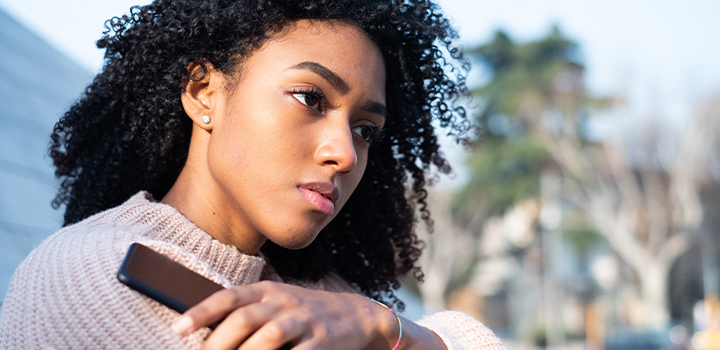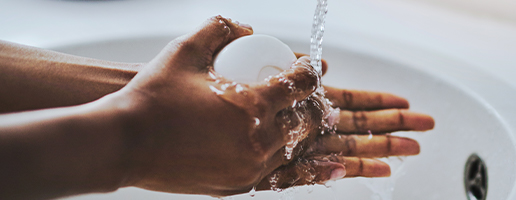Can I have a flu vaccine if I’m sick? Or if I have COVID-19?

South Africans face a double risk to their health this year, namely contracting the latest seasonal flu and COVID-19 at the same time. You want to have your flu vaccine as soon as possible. But can you have it if you feel ill or have COVID-19?
Many people are asking whether having a flu vaccine will combat COVID-19.
The answer is no, it cannot. That’s because the flu vaccine is designed to prevent infection with specific influenza strains, and these are very different from coronaviruses. There is currently no vaccine to protect us against COVID-19.
So, why is it so important to have your flu vaccine this year in particular?
The start of flu season has coincided with the spread of COVID-19 in South Africa. That means we are all at risk of contracting both viral illnesses at the same time. The flu vaccine protects us against each year’s new flu strai
Reasons to get the flu vaccination:
- If you get flu and develop complications, this could also worsen your outcomes if you also get COVID-19.
- We also need to reduce the need for hospitalisation as a result of the flu to help our healthcare systems to allocate resources to save the lives of those people who contract COVID-19 and develop serious respiratory illness. Flu kills roughly between 6 000 and 11 000 people in South Africa every year. Each year the flu vaccine prevents tens of thousands of hospitalisations and deaths.
- That’s why Discovery joins the National Institute for Communicable Diseases in urging all South Africans who are eligible for the flu vaccine, to get their annual flu vaccine as soon as possible this year.
- Generally, flu vaccines contain some egg protein. If you are allergic to egg, you can ask your doctor for other options.
- Here’s Discovery Health’s FAQ document. Get answers to all your questions about COVID-19 and the flu.
How does the flu vaccine work?
Vaccines are an effective way of protecting us from dangerous viral and bacterial infections. Vaccines do this by stimulating our immune system to develop the necessary antibodies required to fight off infections like influenza. Flu vaccines have been shown to reduce the risk of severe infections requiring hospitalisation by up to 60%.
Can you have the flu vaccine if you are already sick?
If you're ill with a fever, it's best to delay your flu vaccination until you have recovered. However, there's no need to delay your flu vaccination you have symptoms of a minor illness and no fever. No matter if your symptoms are linked to the flu, a common cold or COVID-19.
Who is at high risk of serious illness if they get the flu?
Some people think it’s better to catch each year’s new flu strains and allow their immune system to build up immunity in that way. But many people are at high risk of serious illness with complications, hospitalisation or even death if they get the flu. Healthy children and adults can also pass on the virus to high-risk people that they come into contact with.
Discovery Health, using existing published literature, defines high-risk members as those who are:
- 65 years or older
- Pregnant
- Children aged from six months to five years old
- Healthcare workers
- And people with the following conditions:
- Asthma
- Bronchiectasis
- Cardiomyopathy
- Chronic obstructive pulmonary disease (COPD)
- Chronic renal disease
- Coronary artery disease
- Diabetes (types 1 and 2)
- HIV
When should you have the flu vaccination?
The best time to get your flu vaccine is:
- As soon as the vaccine becomes available which is usually just before the start of the flu season.
- The influenza season in South Africa occurs in the winter months and is expected to start in the coming weeks. On average, the season begins in the first week of June. However, in past years the season has started as early as the last week of April and as late as the first week of July.
- The 2020 vaccine is available. It takes the body about two weeks to develop antibodies against the flu strains in the vaccine. This is why it is recommended that people should get vaccinated as soon as the vaccine is available before the start of the flu season.
- While it’s best to get vaccinated before the flu season sets in, if you miss this period, the vaccine can still be effective if you get it at any time during winter.
You had the flu vaccine last year, do you need to have it again?
Last year’s vaccine offers no protection against this year’s flu strains. You need to have the vaccine each year because the strains of the seasonal flu virus change every year. That’s why the flu vaccine is reformulated to match those influenza viruses that research indicates will be most common during the upcoming flu season. And that’s why we need it every year to renew our protection against the flu.
How do you protect yourself from contracting viral illnesses like the flu or COVID-19 from others who are ill?
Keep in mind that antibiotics cannot treat viral infections like the flu. The best way to prevent infection with the flu, COVID-19 and countless other illnesses is to practise the preventive habits that limit your exposure:
- Wash your hands often with soap and water for at least 20 seconds (if you can’t access soap and water, use an alcohol-based hand sanitiser and rub the hands thoroughly)
- Watch our video on how to wash your hands properly
- Avoid close contact with sick people.
- Avoid touching your eyes, nose, and mouth with unwashed hands.
- Practise cough etiquette. If you cough, maintain your distance from others. Cover your mouth and nose with clothing, a flexed elbow or a tissue. Throw away the tissue immediately and wash your hands afterwards.
- Clean and disinfect objects and surfaces that you or others touch often. The virus that causes COVID-19 can survive on common surfaces such as plastics, ceramics, glass and stainless steel for three days and longer.
Where can I have my flu vaccination?
During the South African stay-at-home period, you can arrange to have your flu vaccination at your local pharmacy, through your healthcare provide or, if special arrangements have been made, your workplace. Remember to adhere to the stay-at-home regulations when you leave home and commute to have your vaccination. For the stay-at-home period, you may only leave your home if your work is an essential service, to seek medical care, buy essential supplies or use other essential services. You should also avoid travelling with children if possible to limit their exposure to COVID-19.
You are allowed to take your child to have their flu vaccination. (During the stay-at-home period, you are limited to two people in a car, for example, a driver and child). Call ahead and arrange for the vaccination with your healthcare provider or local pharmacy to limit waiting times and interaction with others once you arrive.
- Visit the National Department of Health’s dedicated COVID-19 website to access Guidelines for the 21-day lockdown and South African lockdown information
ALL MEDICAL INFORMATION FOUND ON THIS WEBSITE INCLUDING CONTENT, GRAPHICS AND IMAGES, IS FOR EDUCATIONAL AND INFORMATIONAL OBJECTIVES ONLY. DISCOVERY HEALTH PUBLISHES THIS CONTENT TO HELP TO PROTECT AND EMPOWER ALL SOUTH AFRICANS BY PROMOTING A BETTER UNDERSTANDING OF COVID-19.
Find a healthcare professional near you
Find a doctor or hospital near you online or by using the Discovery app.
Related articles

Outbreak of the 2019 novel coronavirus
The 2019 novel coronavirus (2019-nCoV) has caused an outbreak of fatal respiratory illness first detected in Wuhan, China. This is a completely new strain with no vaccines available. The best way to prevent infection is to avoid being exposed to this virus.

Understand the Novel Coronavirus (COVID-19) and prevent infection
No country is immune to the spread of the Novel Coronavirus - officially named COVID-19 by the World Health Organization (WHO). The outbreak has reached pandemic proportions and been declared a global public health emergency.

Novel Coronavirus - wash your hands of the threat
As toddlers, we learnt to wash our hands. But, did we ever master the skill to the extent that is needed to wash pathogens off our hands, and save lives? Multiple studies show people don't wash their hands at the right times, in the right way or for the right amount of time. We contaminate the things and people we touch with the germs we carry on our hands.